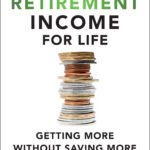By Scott Ronalds
Special to the Financial Independence Hub
If you’re at the point where you’re starting to think seriously about retirement, you’re probably wondering how much money you’re going to need to enjoy life after work, and where it’s going to come from.
Everybody’s wants and needs are different, so there’s no magic number as to how much you should have saved by a certain age. Plus, the face of retirement has changed significantly, with many people working part-time into their seventies and eighties, and others hanging it up in their fifties.
That said, by making a few assumptions, we can give you a rough estimate of what you can expect from government sources and your portfolio when you decide to retire.
The basics
To keep it simple, we’ll use a scenario which assumes you’re 65 and plan to fully retire from your job this year. A few other assumptions:
- You don’t have a pension plan with your employer.
- You’re eligible for full Canada Pension Plan (CPP) and Old Age Security (OAS) benefits.
- You have an RSP that you plan to convert to a RIF this year, and you plan to take the minimum required payments (which will start next year) from your account. (Note: you aren’t required to convert your RSP to a RIF until the calendar year you turn 71, but you can convert at any age before 71 if you choose).
- You don’t have any other investments or sources of income.
First off, let’s look at what you’ll get from the government. You can expect monthly CPP payments of roughly $1,114 ($13,370/year) and OAS payments of about $578 ($6,936/year). In total, you can plan on collecting about $1,690 a month, or just over $20,000 a year. These amounts are indexed to inflation. You can decide to defer taking CPP benefits until you’re older, or take them earlier, in which case your benefits will be increased or decreased, respectively. You can also defer taking OAS to receive a larger monthly benefit.
More than likely, this isn’t going to cover your living expenses or fund the lifestyle you want in retirement. So you’re going to need to rely on your portfolio to cover the shortfall.
RIFing it
Converting your RSP to a RIF means your minimum withdrawal next year will be equivalent to 4.0% of your portfolio’s year-end market value. This figure is based on your age, 65, at the end of the current calendar year. Continue Reading…







